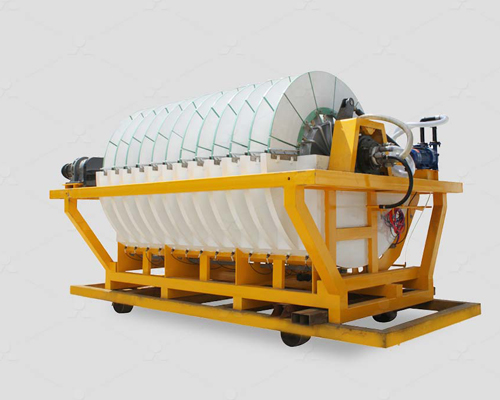Ceramic Filter
Introduction to Ceramic Filters
The Ceramic Filter is a high-efficiency dewatering machine widely used in mineral processing, metallurgy, and chemical industries. Henan Liming Heavy Industry Science & Technology Co., Ltd. manufactures premium ceramic vacuum filters that provide excellent solid-liquid separation, low energy consumption, and high filtration efficiency, making them ideal for fine particle dewatering applications.

How Ceramic Filters Work
Ceramic filters operate on vacuum filtration principles through a specially designed microporous ceramic filter plate system:
- Slurry Feeding – The ore slurry is fed onto rotating ceramic discs
- Vacuum Suction – A vacuum pump creates negative pressure, drawing liquid through the ceramic pores
- Cake Formation – Solids accumulate on the disc surface forming a dry cake
- Automatic Discharge – A scraper removes the dewatered cake
- Ceramic Regeneration – Periodically backwashed to maintain optimal filtration
Key features include pore sizes from 1-5μm, 90-98% water removal efficiency, and automatic PLC control systems.
Applications of Ceramic Filters
- Metal Mining: Dewatering of copper, gold, zinc, and iron ore concentrates
- Coal Processing: Fine coal slurry filtration and tailings dewatering
- Chemical Industry: Separation of catalysts, pigments, and chemical precipitates
- Environmental Protection: Sludge dewatering in wastewater treatment
- Non-Metallic Minerals: Processing of kaolin, graphite, and other fine powders
Key Advantages of Liming Ceramic Filters
- Superior Dewatering – Achieves lower moisture content than traditional filters
- Energy Efficient – 30-50% lower power consumption than belt filters
- Long Service Life – High-strength ceramic plates last 3-5 times longer than cloth filters
- Low Maintenance – No cloth replacements needed, minimal moving parts
- Environmental Friendly – Closed system prevents pollution, reduces water usage
